I can humbly admit that one of the worst vices I have as a college student is being a raging Procrastinator.
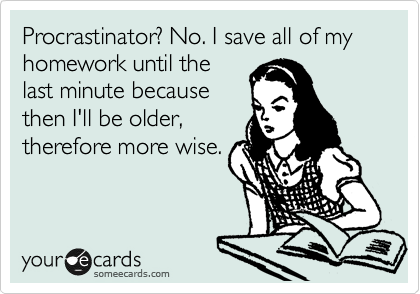
Despite the pitfalls of pushing assignments to the last minute, there are some benefits that have allowed me to perfect my skills as a student, particularly in regard to researching for class assignments and projects. When I have a large assignment due that I’ve put off for days or weeks, I know I’ve got to buckle down and find the most efficient way to gather reliable data on my topic. This means, I won’t just go to Wikipedia and type in my subject.
Instead, I like to try and use common search engines, my personal go-to is Google, as a jumping-off point to learn more about my topic, find relevant news articles, possible university articles or data such as maps, graphs, and reputable websites.
Below, is an example of what I would enter into a search engine for my current HIST390 project.

From here, I am given a wealth of information about my topic. More specifically, “About 1,100,000,000 results (0.69 seconds)” as Google states.
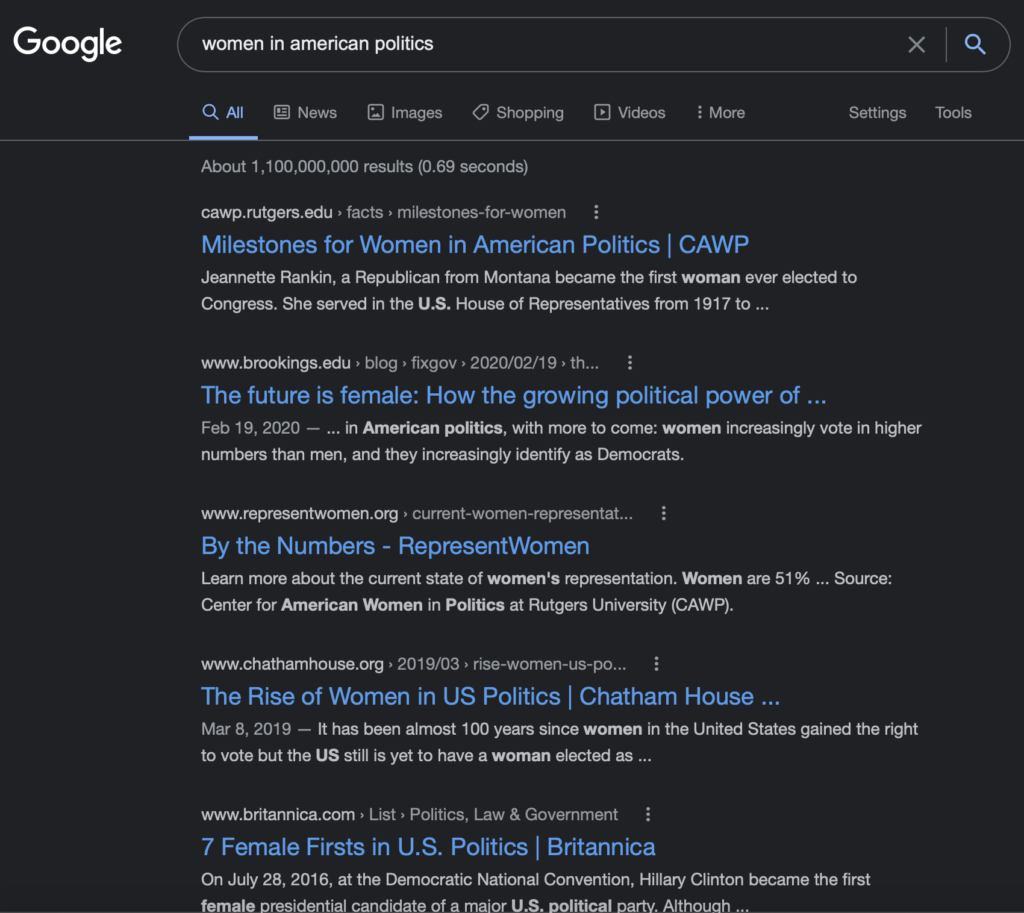
The reason I like to use a common search engine for the first stage of my research is to gain a better understanding for myself on what direction I would like my project to go in. In using a search engine with a wide range of search results, I am better able to explore my topic and gain an understanding of what I envision for the project’s end result.
In this case, I have envisioned an interactive timeline of notable women in American politics. The idea in my head is very broad, and I do not have a deep understanding yet of how I want to accomplish this, let alone have the legitimate data to support the project.
By using a search engine I am comfortable with first, I form a clearer picture in my mind of what I am looking to accomplish. For example, the first result comes from Rutgers Center for American Women and Politics. This is a very reputable source, and displays facts on a timeline similarly to what I envision for my project.
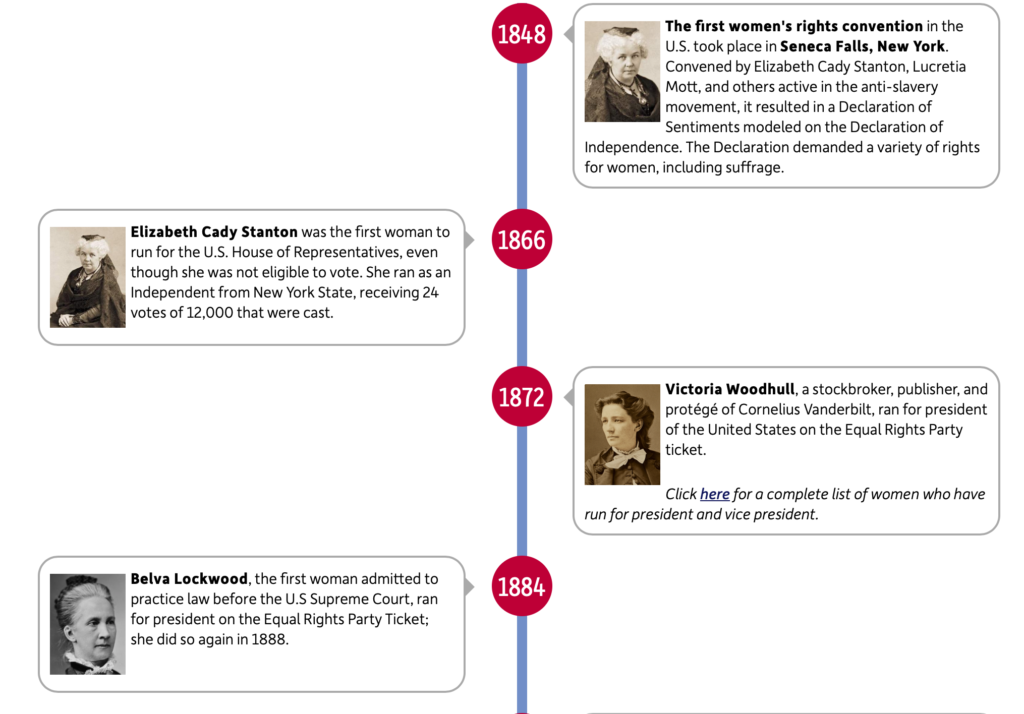
This gave me a better understanding of what I would like to do for my project, and allows me to brainstorm how I would like to improve upon what I’ve seen.
Typically, I spend about thirty minutes gathering information this way, through simple Google searches and mindless clicking on anything that looks reasonable reliable (mainly something with an .edu and certain .org sites). I collect these websites and a small snippet of text, a quote, screenshots or somethings just links that I’ve found on a Pages (Apple version of Microsoft Word) to make sure I don’t loose track of anything I found useful.
Next, I move on to the more reliable sources of information. In this case, I am using the George Mason University Libraries website. This website has many useful sources that I am confident are more reliable to cite in my project than what Google has to offer. I use the same search parameters to start as I do on Google to see what I find, and then will dive deeper into specific names, dates, and subjects later.

Naturally, there are far fewer search results (before I specify what types of results I do and do not want) here, 1,520,389 Results to be exact, than Google, which raked in over a billion. I try to narrow my search results to include, due to COVID-times in particular, sources available online. Since this is a resource connected to the libraries at George Mason, I try to avoid sources that are only available in hard-copy books I would need to go pick up. I also ensure any journals are peer-reviewed and that these sources are open access, for good measure.
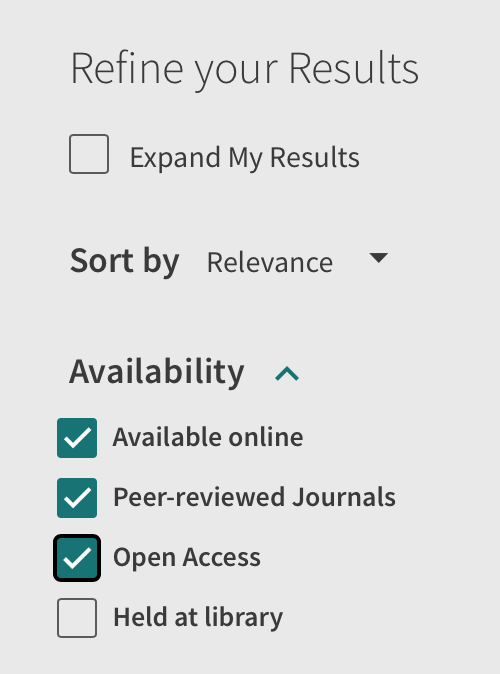
This helps me to gather information more quickly and lessens the search results to 47,716 results, just as a jumping-off point.
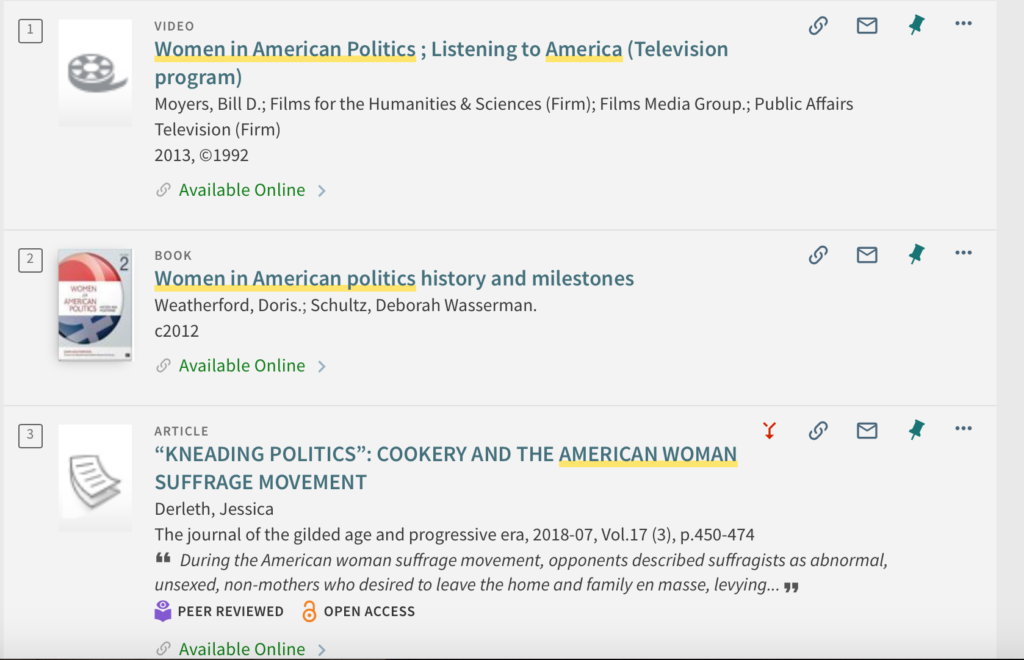
Once I have gathered up as many sources as I think are relevant and picked apart the pieces I want to use for my project, I begin to piece it all together. Projects for me are like puzzles, and once I have all the pieces laid out in an organized fashion in front of me, I am able to complete things relatively quickly. This drive to get things done efficiently once I have the information gathered is definitely a byproduct of my intense procrastination.
While I do feel I produce work that represents my abilities well, I think if I could change an aspect of my personal process, it would definitely be to give myself significantly more time to at least research my topics. Having more time to gather information would not only help me feel calmer when it comes time to put the final project together, but I know I would get higher marks on assignments as I would have more time to review what I have created rather than rushing to get something turned in by a deadline.
Unfortunately, myself and 11:59pm (on the night an assignment is due) have grown to know each other far too well both during my latter high school and college careers. This is a toxic relationship I am looking forward to someday learning to distance myself from. We’ll see…
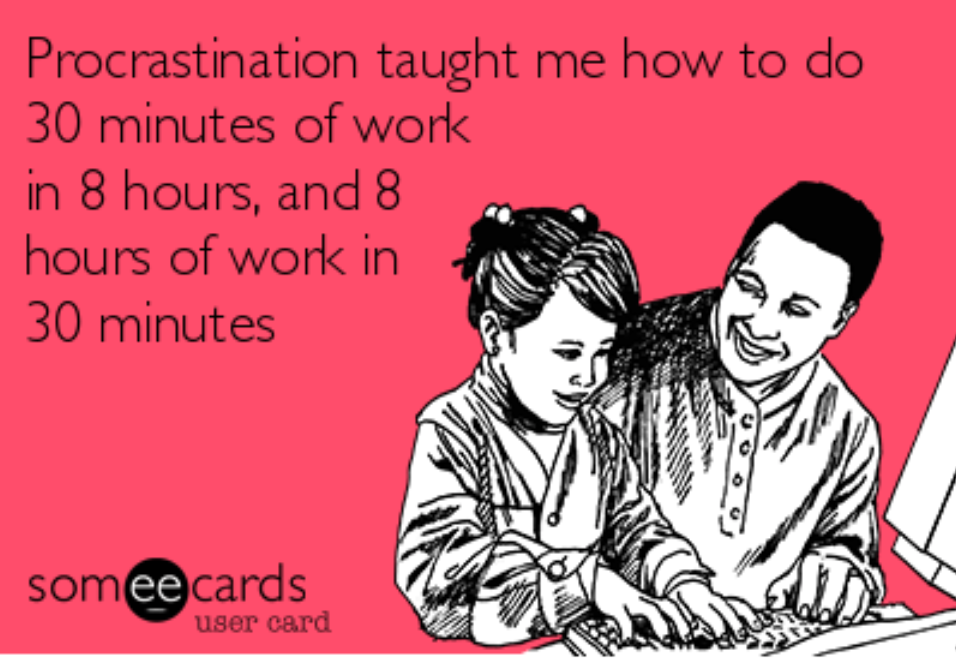
I love how detailed you were with describing your research process! The screenshots were also very helpful when following along with what you wrote, but my favorite part of this blog post were the two images from someecards.com.